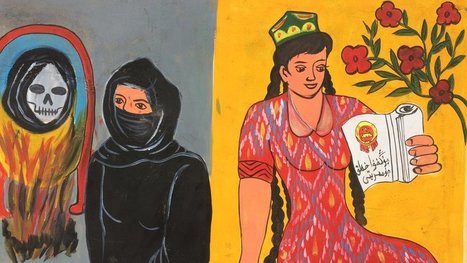The popular belief that religion is the cause of the world’s bloodiest conflicts is central to our modern conviction that faith and politics should never mix. But, Karen Armstrong writes, the messy history of their separation suggests it was never so simple
After a bumpy beginning, secularism has undoubtedly been valuable to the west, but we would be wrong to regard it as a universal law. It emerged as a particular and unique feature of the historical process in Europe; it was an evolutionary adaptation to a very specific set of circumstances. In a different environment, modernity may well take other forms. Many secular thinkers now regard “religion” as inherently belligerent and intolerant, and an irrational, backward and violent “other” to the peaceable and humane liberal state – an attitude with an unfortunate echo of the colonialist view of indigenous peoples as hopelessly “primitive”, mired in their benighted religious beliefs. There are consequences to our failure to understand that our secularism, and its understanding of the role of religion, is exceptional. When secularisation has been applied by force, it has provoked a fundamentalist reaction – and history shows that fundamentalist movements which come under attack invariably grow even more extreme. The fruits of this error are on display across the Middle East: when we look with horror upon the travesty of Isis, we would be wise to acknowledge that its barbaric violence may be, at least in part, the offspring of policies guided by our disdain.
Tags: religion, culture, conflict, political, geopolitics.
Via
CT Blake



 Your new post is loading...
Your new post is loading...






















Most people would agree that Opium is a devastating addiction. But what most of us don't see is the other side of the drug trade. This video shows the vulnerability of the drug-dealers and poppy-farmers. The Afghanistan government finds and destroys a poppy farm and the interview with a boy of the farming family is riveting. You can't help but feel bad for these people, especially the children who are directly effected by it.
Drug trafficking is a problem all over the world, but this is really something else. Realistically, these people are just growing flowers, but it's their intent that is the problem. I was always aware that Afghanistan was a major producer of drugs, but I had no idea the extent. I agree that if someone has illegal drugs, that they should be punished. But these poppies are these people's life line. That's not to say that what they are doing is acceptable, but you can't help but feel bad. They live in a poor region where they are doing what they need to just to feed their families. It's kind of heartbreaking, but there are laws against these drugs for a reason, and they should be penalized. Then there is the question of how do they choose one family to punish, when this is clearly a huge problem that is not easily hidden; these people are growing these plants in plain sight. The government has every right to punish them, and as upset as they are to have their crop destroyed, I would think it's got to be better than getting thrown into an Afghani prison.